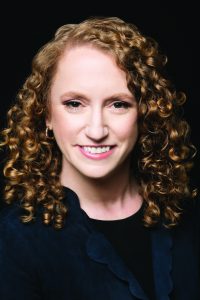The PEN Pod: On Dave Chappelle, Protecting Journalists, and More Facebook Revelations

Photo by Beowulf Sheehan
Every Friday, we discuss tricky questions about free speech and expression with our CEO Suzanne Nossel, author of Dare to Speak: Defending Free Speech for All, in our weekly PEN Pod segment “Tough Questions.” This week, we spoke with Suzanne about Netflix’s defense of a controversial Dave Chappelle comedy special targeting the transgender community, a new bill signed by the governor of California that protects journalists from police interference while covering demonstrations, and the revelation that Facebook has a blacklist for thousands of individuals and groups. Check out the full episode below (our interview with Suzanne begins at the 10:55 mark).
On Dave Chappelle’s Netflix Comedy Special
“I think the claim that this constituted incitement is inaccurate and problematic. I think [the special is] offensive; it’s deeply offensive, it’s denigrating. In my book, I talk about the harms of speech, and particularly how, when people are on the receiving end of slurs and stereotyping their whole lives, how that can affect their sense of self, their psychological and even physical well-being, [and] their academic performance. We know that’s true of the transgender population, because it is a group of people that has not been widely accepted, has had to deal with a great deal of stigmatization, and I think his comments fit under that rubric.
“I don’t think that renders it incitement to violence. I believe speech can be harmful without crossing that threshold into incitement. So I think if the test is Netflix’s own policies, that they draw the line at incitement but otherwise encompass a very big tent of speech, including that which may be objectionable, offensive, even hurtful, and you know, in the aggregate—I don’t think that single utterance causes the harm but it’s the cumulative effect of being on the receiving end of derogatory, denigrating depictions over time—you know, if they ban that stuff from the platform, I think there’s good argument this would fall into that category, but they don’t. They seem to draw the line at incitement.
“Incitement, under the law, means a very specific thing. Imminent violence is the only form of incitement that is banned, can be banned and punished, here in the U.S. under the First Amendment. Now, incitement as a concept can be broader than that, and Netflix is free as a private company to interpret the term as it sees fit, but I do not think what he says meets a conventional definition of incitement. Incitement is really urging people on to an act of—even if not violence—harshness, derogation, some kind of attack, maybe a verbal assault, and I don’t think his remarks in the course of this comedy sketch rise to that level.”
On the California Bill Protecting Journalists
“If you have journalists who are there doing their work, and that means that they can’t cover what’s going on, and it’s a matter of newsworthy interest, we as the public, our right to know, we have an interest in seeing the press be able to move freely and not be subject to the same constraints as ordinary pedestrians [and] marchers. If the rights of others are being impinged upon by having the press there, that is exposed to the light of day, we find out about it, we can remedy it, so I think this is a positive step.”
On the Revelation of Facebook’s Blacklist
“They don’t want their platform to be used as an arena to exalt, celebrate, or egg people on to join these entities. I think at that level, it’s very easy to understand. In fact, what many people over a long time clamored for, is to clamp down on these types of content—it’s a cesspool. The movement of the advertisers coordinated by Color of Change and the ADL last year—the advertiser boycott was about getting hatred off the platforms, and these are groups that are propagating hatred in the determination of Facebook, so that’s what it’s all about, and why this exists.
“Now, when you look down the list, what is jolting and jarring is it’s a huge list, it goes on for pages and pages and pages, it’s got all sorts of names and entities that operate in different countries, some of them have similar names to one another, and you just wonder—well, where are all these names coming from, how is this list assembled, are there entities on this list that don’t belong there, who does the vetting? Are they just—they seem to be accepting, just kind of lock, stock, and barrel, U.S. designations of terrorist organizations. Is that appropriate? There are arguments that some advocates are making that that’s a U.S. perspective, and perhaps there’s some groups on those lists that arguably don’t belong there.”






